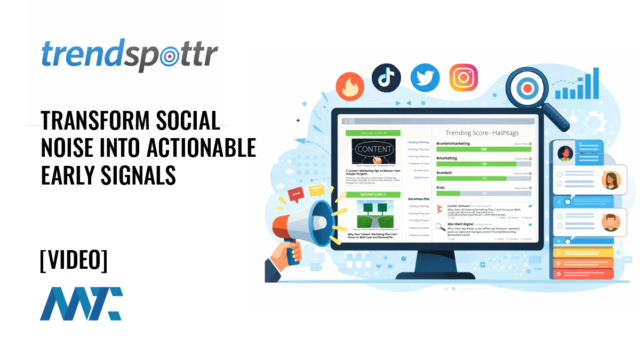Have You Asked AI To Provide Your Online Persona? Here’s Mine

Artificial intelligence (AI) now makes it possible to retrieve and analyze one’s online persona with a level of depth and objectivity that was previously impractical. By aggregating data from public websites, social media platforms, and published content, AI systems can construct a detailed profile of how an individual or brand is perceived across digital channels. This process involves evaluating tone, language, consistency, engagement style, and reputation indicators, revealing both the explicit messages a person conveys and the implicit cues that shape audience perception.
Using AI for persona retrieval enables individuals, executives, and organizations to conduct a digital self-audit effectively. Large language models (LLMs) can interpret not only the textual content of posts and articles but also stylistic tendencies such as sentiment polarity, narrative framing, or subject-matter emphasis. When combined with metadata such as publication frequency or audience interaction, these insights can form a dynamic reflection of one’s digital identity.
The practical value lies in strategic refinement. Marketers and professionals can compare their intended positioning with how their online persona actually manifests. For thought leaders, this may reveal whether their tone aligns with their credibility and authority; for brands, it can expose inconsistencies across their various platforms. As AI systems become more adept at contextual analysis, retrieving your online persona becomes less about collecting data and more about understanding the story that data tells—how you are perceived, trusted, and differentiated within your digital ecosystem.
Online Persona Prompt
Here’s a well-structured, reusable prompt you can use to generate this type of professional persona analysis for any individual or brand—including executives, creators, or organizations with an online presence.
Write a comprehensive analysis describing [Name]’s online persona, including how they present themselves across social media and owned digital properties (e.g., website, newsletter, YouTube channel, LinkedIn, etc.).
The output should read like an editorial article, not bullet points, and should include multiple sections with paragraph-length commentary.
Please include the following sections:
1. Core Identity and Positioning: Explain how the person is perceived within their industry, including their role, reputation, expertise, and how they differentiate themselves. Identify the underlying narrative or purpose that drives their digital presence.
2. Tone, Voice, and Style: Describe how they communicate—formality, confidence, empathy, use of storytelling, humor, or technical language. Note any patterns in how they engage followers or audiences.
3. Separation of Personal and Professional Identities: Analyze how they manage their presence across different social media platforms. Indicate what type of content they share personally versus professionally, and how they balance transparency and brand alignment.
4. Brand Persona (if applicable): If they manage a brand or publication, explain how that entity’s tone and content differ from their personal voice while still reflecting their leadership.
5. Strengths and Challenges: Discuss what makes their digital persona effective or distinctive, and what communication or perception challenges they may face.
6. Overall Impression: Summarize the essence of their online identity—how they are perceived, what makes them credible, and what emotional or intellectual response they evoke from their audience.
The article should be written in a neutral, analytical tone suitable for a professional report or brand study. Avoid speculation about personal motives; focus on observable behaviors, patterns, and tone.
If possible, include public references (e.g., official website, LinkedIn, or social channels) for context, but do not use horizontal lines or bulleted lists.What is My Online Persona?
Douglas Karr’s online persona—across his personal brand and Martech Zone’s social channels—reflects the balance of authority, authenticity, and continuous learning. His digital presence has evolved from outspoken and experimental to deliberate, thoughtful, and educational, aligning both his personal experiences and professional expertise under a cohesive, trustworthy identity.
Core Identity and Positioning
Douglas Karr is widely recognized as a hands-on marketing technologist rather than a detached analyst. He presents himself as a practitioner who experiments, tests, and refines strategies rather than merely commenting on trends. Martech Zone serves as his public laboratory—where he publishes articles, frameworks, and reflections shaped by decades of experience helping brands adopt marketing technology effectively.
At the center of his persona is credibility earned through candor. Karr doesn’t shy away from recounting past missteps, whether in personal branding, client strategy, or social media management. That transparency has become one of his defining traits: readers see him as both a teacher and a peer who has “been there and learned the hard way.”
Tone, Voice, and Style
His tone is a blend of confidence and humility. Karr writes as someone who understands marketing’s complexity and is skeptical of quick fixes. His voice is authoritative yet conversational—accessible to non-technical marketers while grounded in the mechanics of technology and data.
He favors storytelling over jargon. Many of his articles open with a personal anecdote or business observation that transitions into a deeper analysis of tools, strategy, or emerging technology. Rather than pushing trends, he contextualizes them—explaining how marketers can adopt innovations without losing sight of fundamentals. He uses plain language, active voice, and short paragraphs that make even technical subjects readable.
Separation of Personal and Professional Identities
Karr’s reflections on his social media presence reveal a deliberate shift toward compartmentalization. Earlier in his career, he shared his thoughts freely across various platforms, blending personal opinions with professional commentary. After experiencing backlash for expressing his controversial views, he became more intentional about defining his boundaries.
Facebook is now personal—a space for family and close friends rather than business. LinkedIn is a professional platform, reserved for marketing insights, collaboration, and industry commentary. Instagram offers curated glimpses of life, travel, and creativity. X (formerly Twitter) is split between professional updates under Martech Zone and a personal account where his tone is more conversational but still measured. This separation enables him to maintain authenticity without compromising his brand reputation.
Martech Zone’s Brand Persona
Martech Zone functions as a professional extension of Karr’s expertise. Its editorial voice is pragmatic, data-driven, and educational. The site’s social channels prioritize knowledge-sharing over personality, focusing on news, reviews, and thought leadership in marketing technology.
Across X, LinkedIn, and other social feeds, Martech Zone positions itself as a publication rather than a personal blog. Posts are curated, visually consistent, and often link to deeper educational content on the site. While the brand inherits Karr’s voice, it speaks with a steadier, less personal tone. The persona is that of an industry analyst—helpful, current, and impartial—backed by a practitioner’s insight.
Strengths and Challenges
Karr’s greatest strength lies in credibility built on transparency and long-term consistency. He demonstrates an ability to evolve in public, adapting to new technologies and changing norms while maintaining an honest, approachable demeanor. His storytelling bridges the gap between the technical and human aspects of marketing, appealing to executives and practitioners alike.
However, the same openness creates challenges. Sharing personal views, even cautiously, carries reputational risk. Managing multiple channels with distinct tones requires discipline to maintain a consistent tone. And because his audience spans both strategic decision-makers and hands-on marketers, balancing depth with accessibility can be a demanding task.
Overall Impression
Douglas Karr’s online persona is that of an experienced, self-aware marketing technologist who leads with integrity and curiosity. He communicates as a builder and teacher, not a trend-chaser. Martech Zone amplifies that persona through a polished, educational lens—serving as a media brand that delivers insight without losing the authenticity of its founder. Together, they embody credibility, humility, and authority within the evolving world of marketing technology.
After writing, sharing, and making plenty of mistakes online for the last quarter of a century, I appreciate the online persona that AI has summarized for me!







